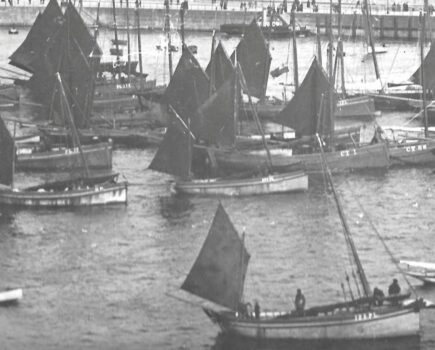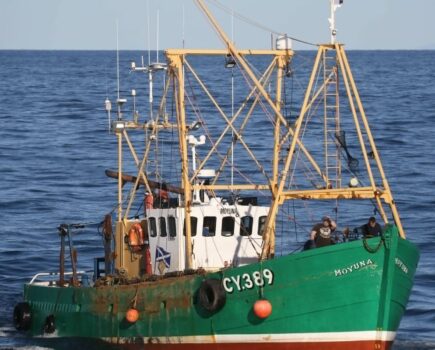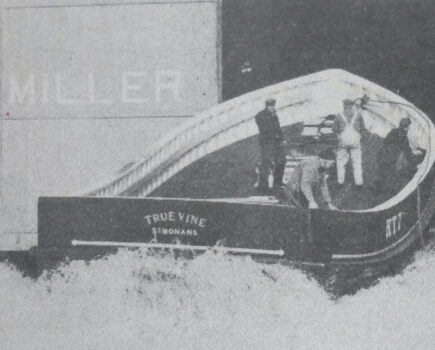Scottish cabinet secretary for rural affairs and islands Mairi Gougeon considers the role of Scotland’s fishing industry in responding to the climate emergency
For two weeks this month, the eyes of the world will be on Glasgow as the UN Climate Change Conference of the Parties – or COP26 as it is commonly known – takes place. It must be a catalyst for governments to move from making promises to taking the actions we need now in order to safeguard our planet.
For Scotland, it’s an opportunity to highlight the action we have taken already, but also a reminder that we need to do even more. The response to the climate emergency must come from governments of all levels, all of us as individuals and every sector of our economy.
As the Scottish government cabinet secretary responsible for fishing, I know the vital role the industry plays in Scotland’s rural and island economy and our food and drink sector. It has a vital role to play in our climate change story too.
Scotland’s fishing industry provides a nutritious source of food with a lower carbon footprint than many other animal proteins. But it also finds itself on the front line of climate change. Our seas and marine ecosystems are already under stress, and hard decisions are needed to safeguard our rich marine environment.
Serious challenges also come from working in a shared marine space, and the need to reduce emissions and adapt to the changes we are already beginning to see. We need to take action now to ensure that a sustainable fishing industry can survive into the future.
Tackling the climate emergency is key to Scotland’s Future Fisheries Management Strategy, our action plan to support our ambition to be a world-class fishing nation. Through this we are investing in research to help develop our understanding around fish stocks, supporting changes to sustainable and innovative fishing techniques, and encouraging better use of local markets and shorter supply chains to minimise the carbon footprint of our fantastic Scottish fish.
Blue carbon – habitats like seagrass, kelp forests and saltmarshes, which mitigate climate change and store carbon in our marine environment – is an area of huge potential for Scotland, and will be the focus of an international conference I will open during COP26.
We are also launching a survey, to be followed up with workshops in early 2022, to map out what the Scottish government can do to support the fishing industry as it responds to the climate challenge. I would encourage everyone with an interest in Scottish fisheries to engage. From consultation on proposals to co-management in fisheries to the commitment to a Seafood Strategy, we are committed to working with the fishing industry.
But we can’t avoid the hard decisions and difficult conversations that lie ahead. We all need to challenge ourselves and each other to respond to the climate emergency, and Scotland’s fishing industry will once again be tested.
The Scottish government, however, is committed to a just transition which is fair for everyone. This means that we will support Scotland’s fishing industry, the wider seafood supply chain and our coastal and island communities through the economic and social challenges ahead.
We all want to protect our climate, safeguard our marine environment and build a strong, sustainable and resilient fishing industry. It’s the actions we all take together that can achieve the change we need and deliver economic, social and environmental benefit into the future.
This article is from Fishing News’ special feature on industry responses to the climate crisis as part of the COP26 conference in Glasgow. Subscribe to Fishing News here or buy the latest single issue for just £3.30 here.








